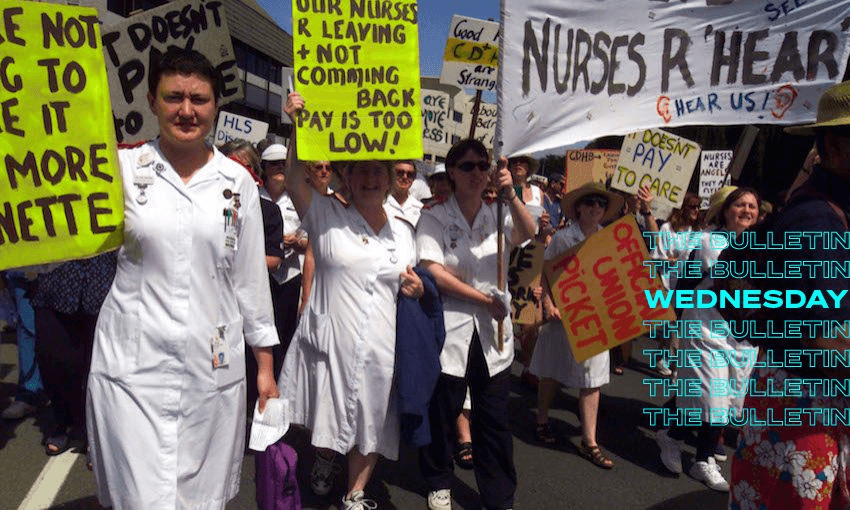There are around 235,000 health and care workers in New Zealand. Nurses, allied health and care and support workers are all currently engaged in pay disputes, writes Anna Rawhiti-Connell for The Bulletin.
Nurses headed to Employment Relationship Authority
Tomorrow is International Nurses Day. It’s marked each year on the anniversary of Florence Nightingale’s birth. Here in New Zealand, nurses won’t be celebrating, as four years of pay equity negotiations drag on. New Zealand Nurses Organisation (NZNO) members (40,000 of them) were set to vote on an agreement with DHBs last month but, on Monday night instead voted to take the offer to the Employment Relations Authority. A legal review commissioned by the NZNO found the proposed settlement to be contrary to the Equal Pay Act. Speaking to RNZ’s Morning Report yesterday, NZNO chief executive Paul Goulter said “Nurses are sick of it and want to get on with their jobs but they have a deep sense of injustice around gender discrimination”.
Back pay still the sticking point
The NZNO and the Public Service Association (PSA) lodged pay equity claims for nurses in 2017 and 2018. At the crux of it was an assessment of whether nurses, a predominantly female workforce, had received less pay than men in comparable roles. A settlement was announced in early April this year but many nurses were disappointed that new pay rates would not be back-paid to December 2019 as previously agreed. The NZNO is now asking the ERA to rule on the back pay issue, rates for senior nurses and look at a review of the mechanism to ensure pay equity is maintained in the future.
Pay equity issues not confined to nurses
Investigative journalist Rebecca MacFie has written about a stall in further pay equity settlement negotiations for 65,000 care and support workers. The Care and Support Workers (Pay Equity) Settlement Act was passed in 2017. It followed decisions from the Employment Court and Court of Appeal around residential aged care worker Kristine Bartlett’s case. MacFie reports that the expiry date for the 2017 legislation is July 1 and nothing has yet been achieved in getting a replacement or extension for it. Pam King, a home care worker in Invercargill, says she and fellow workers are “totally pissed off”, and strike action is now possible.
Allied health worker strike still set for next week
Meanwhile, 10,000 allied health workers are also engaging in industrial action, working to rule over the next two weeks, doing no more than the duties required by contract, taking all entitled breaks and working rostered hours. They are set to strike on May 16. Hawke’s Bay DHB chief executive and spokesperson for DHBs on the matter, Keriana Brooking, said “DHBs still hope to prevent further action next week and that the offer being finalised now will result in the lifting of the strike action”.


